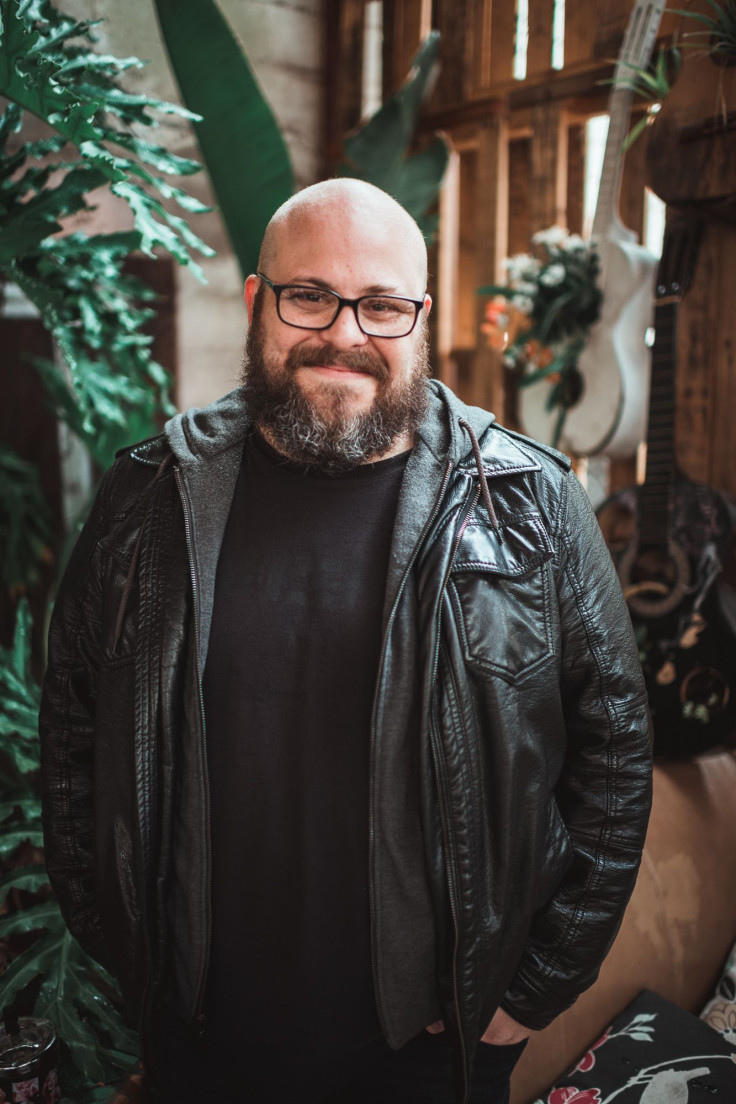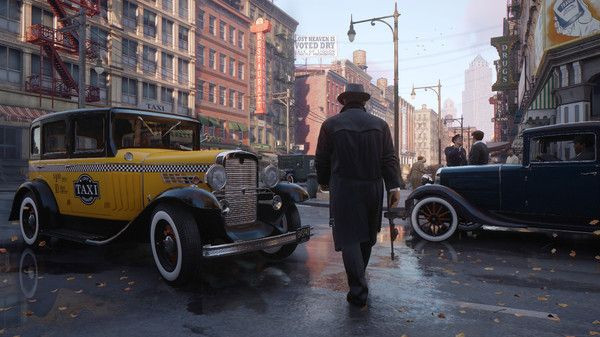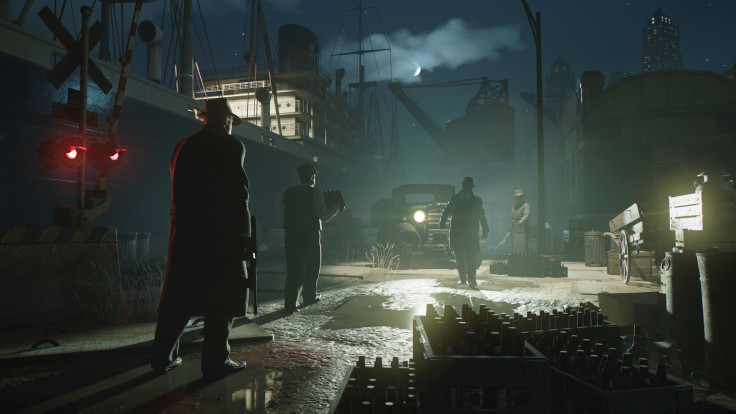Mafia: Definitive Edition was rebuilt to provide updated graphics, textures, lighting, and gameplay elements to bring the 2002 release up to modern-day standards. Along with all this technical work, the audio was also updated to accompany the new content and to give a new life to the original score. Enter Jesse Harlin.
Harlin has previous experience with the Mafia franchise, having scored Mafia 3 for Hangar 13. While Harlin wasn’t the composer of the original Mafia score, he saw the opportunity to both pay homage to what had been done before while creating something new.

Because Harlin isn’t a 2K employee, he wasn’t involved in the decision to create a new score for Mafia: Definitive Edition. However, about a year and a half ago, 2K reached out to hire Harlin on as the game’s composer. “This was in part because the original score was 30 minutes long and they wanted more music to cover more of the game,” Harlin told Player.One.
“They [2K] came to me and they said ‘we would like you to write a new score,’” Harlin said about the early stages of the project. However, the new score wouldn’t completely ditch the work that had come before. “After discussing it, 2K came to the agreement that rather than replacing the whole score, they would keep the main theme because there’s this iconic flythrough of the city that was in the beginning of Mafia originally that has been recreated in the Definitive Edition. It just made sense to have the original score.”
The opening shot is choreographed to the music, so that song was kept in. While Harlin did take inspiration from the original, the rest of the music is all his. “I wanted to do what 2K asked me to do, which was write a new score, but I also wanted to have a link back to the original. I took the beginning of [original composer Vladimir] Šimůnek’s main theme, like the first eight bars or so, and I turned that into the main theme that I referenced throughout the entire new score,” he said. “That piece of his score is probably in the new score more than it originally was in the old score.”

While Harlin did feel a sense of professional obligation to keep the spirit of Šimůnek’s score alive, he also felt it was somewhat of a cultural obligation too. Mafia was developed by the studio now known as 2K Czech. “The original was made in Czechia and is a culturally significant title for the Czech gamers and even beyond that. There are orchestras in Czechia that still perform suites of the music from the original Mafia,” said Harlin.
To further tap into the cultural roots of the score, Harlin recorded part of the music in Prague with Czech musicians. In fact, one of the bass players even makes an appearance in both games, having recorded for both game soundtracks.
While a game about the 1930s mafia set in a city heavily inspired by Chicago conjures the sounds of jazz in our ears. Harlin wanted to look deeper into the characters to find ideas for the Mafia: Definitive Edition score. I was looking at these characters, and it’s in the 1930s, but everyone in the game is about 30 years old or older. That means pretty much everyone in this game isn’t from the 20th century, they’re from the 19th century. And many of them are from Italy,” Harlin explained.
With this background, Harlin added that the characters are all likely Catholic, which means the most common music they would be used to would be church music, opera, and Italian folk music. “I wanted to make sure that the music didn’t sound like these guys all were going and sitting in speakeasies every night. It didn’t feel to me like that was what they listened to,” he said. “You also have to remember that back in the 1930s there wasn’t a lot of recorded music. You didn’t hear music all around you like we do today. You had to go and seek it out. If you could afford a radio, you just got whatever was programmed for you.”

Additionally, classical music has traditionally played a role in mafia stories. “Music, especially classical music, back then was the sound of affluent wealth. That definitely hangs over every mafia story, the chase of more and more money,” said Harlin. “The idea of raising up from the taxi driver into a made man that is doing well for himself. That’s the story behind most mafia stories at their heart.”
While the score does feature the typical instruments like horns, strings, and drums, Harlin did make sure to incorporate some other unique sounds as well. “I had mandolin that I wanted to use specifically to represent music related to the character of Don Salieri, specifically because I wanted to pull in an old world Italy feel. I was listening to some Italian folk music, and looking at the instruments Italian folk music uses. I pulled in the mandolin to have something that says ‘Italy,’” Harlin said.
But that isn’t where the list of interesting instruments ends. “The mandolin is a high-range instrument, so I wanted something that can do the same thing as a mandolin, but in a lower register,” explained Harlin. “I also used an instrument called a cimbalom, which is a string instrument played by hammering on the strings. It can be used to make a sound that is very similar to a bass mandolin.”
With working on Mafia 3 and now Mafia: Definitive Edition, Harlin views Mafia 2 as the musical bridge that unites the franchise. “The interesting connective piece is that there is a spot in the Mafia: Definitive Edition score where I quote the main theme from Mafia 2,” said Harlin. “When writing the score for Mafia 3, one of the main characters from Mafia 2 is Vito Scaletta, who was a secondary character in Mafia 3.”
Harlin then used Mafia 2 as an inspiration when working on Mafia 3. “All of the music for Vito in Mafia 3 was based on the main theme from Mafia 2. Mafia 2 ends up being the puzzle piece that connects the series and runs through all three games,” he said.
Mafia: Definitive Edition releases for PS4, Xbox One, and PC on September 25.


















